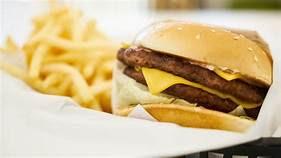High-fat diets may over-activate destructive heart disease protein.
High-fat diets may over-activate destructive heart disease protein.
According to new research, consuming a high-fat diet may be activating a response in the heart that is causing destructive growth and leads to a greater risk of heart attacks.
In a paper published in Biochemical and Biophysical Research Communications, researchers looked at the effect of feeding mice a high-fat diet on oxidative stress levels on heart cells. The University of Reading team found that cells from the mice had twice the amount of oxidative stress and led to heart cells being up to 1.8 times bigger due to cardiac hypertrophy associated with heart disease.
Named first author Dr. Sunbal Naureen Bhatti, from the University of Reading, said:
"Our research shows one way in which a high-fat diet can cause damage to the muscle cells that make up our hearts. It appears that a switch happened at a cellular level when the mice were fed on a high-fat regime which causes a normally harmless protein, Nox2, to become overactive. The precise nature of how the Nox2 protein goes onto cause oxidative damage and set off destructive hypertrophy is still being researched.
"We are really just scratching the surface of how the protein Nox2 responds to diets, but our research clearly demonstrates that high-fat diets have the potential to cause significant damage to the heart."
The researchers focused on a key protein, Nox2, which is believed to be associated with increased oxidative stress in the heart. The study found that the mice fed a high-fat diet had twice the amount of Nox2 activity, which also led to a similar amount of reactive oxygen species (ROS), a free radical associated with the body's pathological damage.
To check whether Nox2 was involved in causing the cardiac stress, the team compared the results with mice bred specifically to 'knock out' Nox2, stopping the protein from activating at a cellular level. The 'knock out' mice were also fed a high-fat diet but showed little or none of the same raised levels of oxidative stress.
Also, the team used three experimental treatments, which are known to reduce Nox2-related ROS production, and found that all three showed some promise in reducing the effect of ROS in damaging the mice hearts.
The mice that were fed high-fat diets received 45% of their calorie consumption from fat, 20% from protein, and 35% carbohydrate.




Comments
Post a Comment